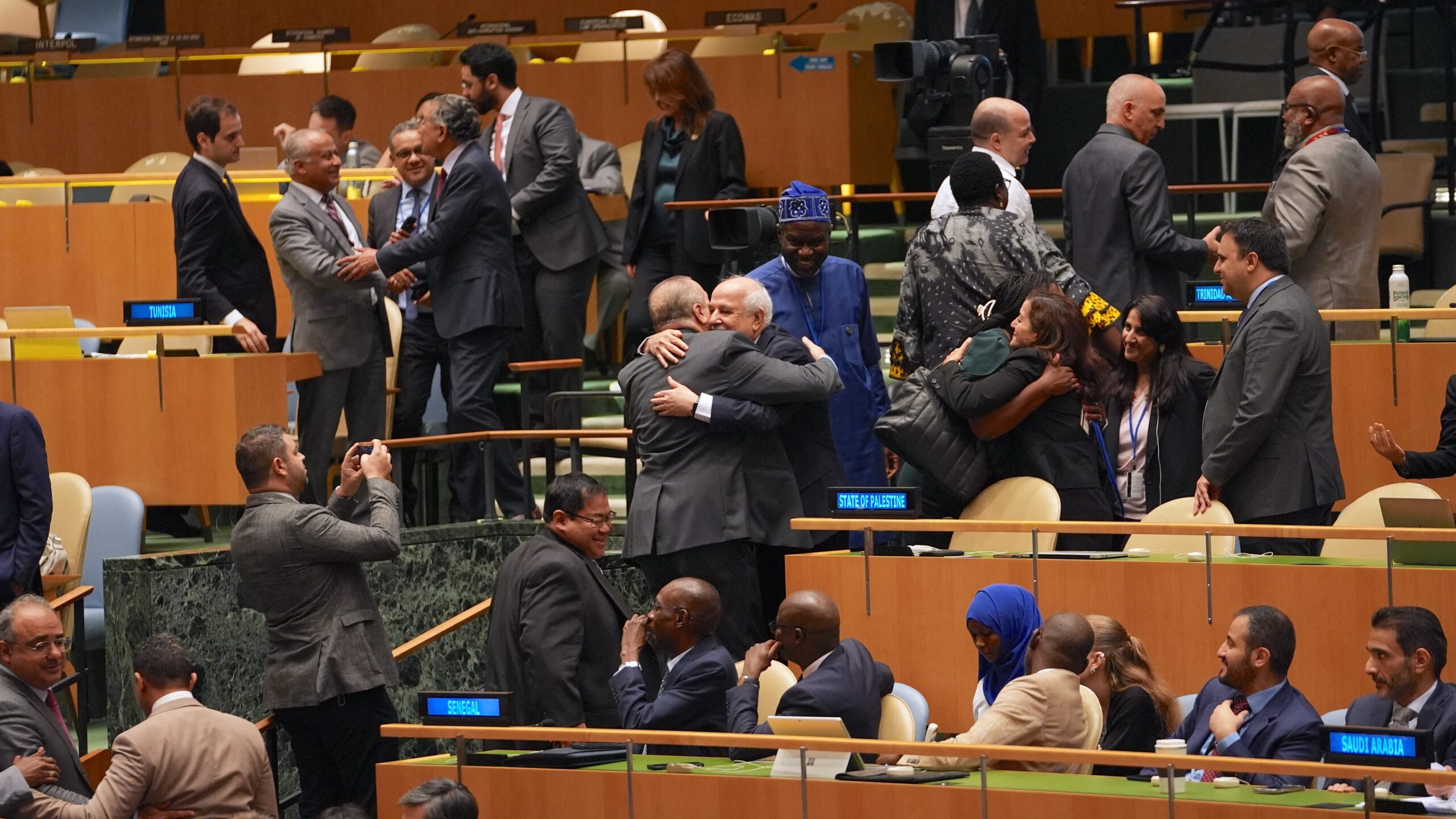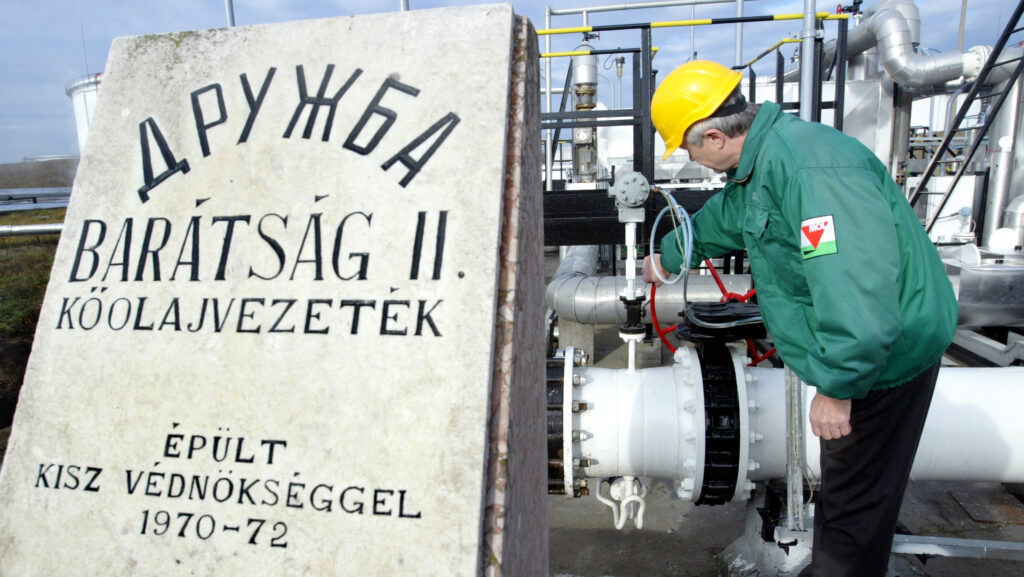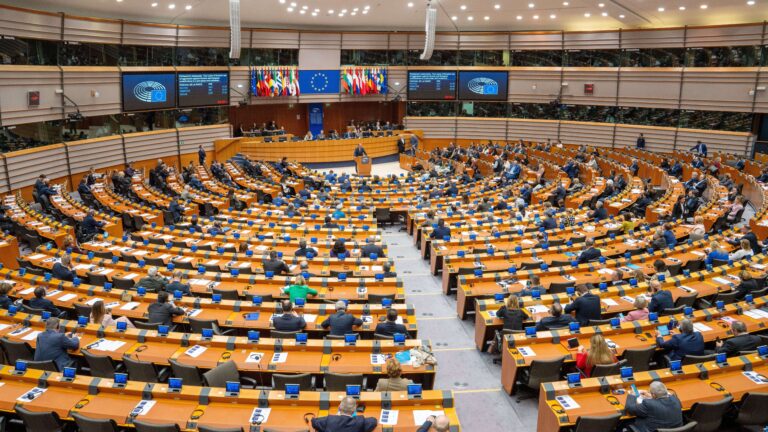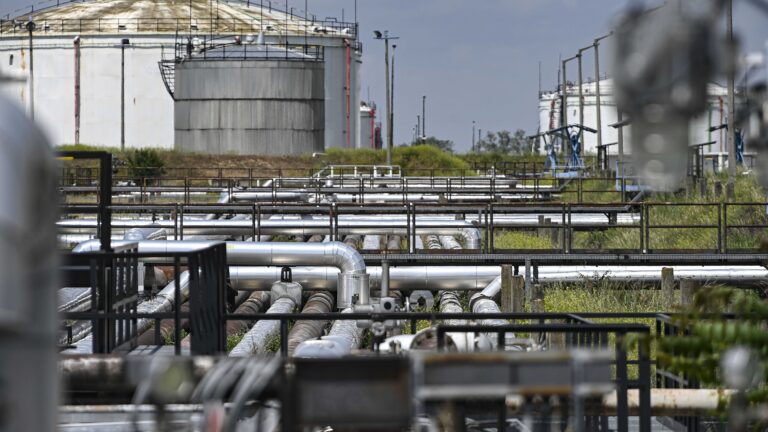On 18 September the UN General Assembly adopted a resolution with 124 votes in favour that demands that Israel pull out of Palestinian areas within a year and calls for an embargo on arms that Israel might use in those areas. The resolution states that Israel should ‘end without delay its unlawful presence’, including all soldiers and civilians, in the ‘occupied Palestinian territory’ within 12 months.
The resolution was based on the International Court of Justice’s advisory opinion of July 2024, which stated all states have an ‘obligation not to recognize as legal the situation arising from the unlawful presence of Israel in the Occupied Palestinian Territory’ and ‘not to render aid or assistance in maintaining the situation created by Israel’s illegal presence in the Occupied Palestinian Territory.’ It also calls on member states not to sell arms or military equipment to Israel that the Jewish state would use in Gaza, the West Bank, and East Jerusalem, and calls for a boycott of Israeli products that are produced in the area.
As on several other occasions, Hungary supported Israel at the UN and was among the fourteen nations that voted against the resolution, alongside countries such as the US, Argentina and Paraguay. Forty-three member states abstained, including Australia, Canada, the United Kingdom, while EU members states Belgium, Cyprus, Estonia, Finland, France, Greece, Ireland, Latvia, Luxembourg, Malta, Portugal, Slovenia, and Spain voted in favour.
The Resolution Makes No Mention of Hamas Terror or the Hostages
As The Jerusalem Post pointed out, the resolution doesn’t mention Hamas’ brutal incursion into Israel on 7 October or the 101 hostages that are still being held captive in Gaza. It also conspicuously avoids mention of the continuing Palestinian attacks on Israel. Danny Danon, Israel’s Ambassador to the UN, commented: ‘Instead of marking the anniversary of the 7 October massacre by condemning Hamas and calling for the release of the remaining 101 hostages, the General Assembly continues to dance to the music of the Palestinian Authority, which backs the Hamas murderers.’
Although Canada abstained in the voting, the Canadian Ambassador to the UN, Bob Rae, criticized the resolution, saying: ‘Canada cannot support a resolution where one party, the State of Israel, is held solely responsible for the conflict.’ ‘Canada is concerned that this resolution contains language that aligns with [the] Boycott, Divestment and Sanctions [movement], which Canada firmly opposes. This effort seeks to uniquely isolate Israel,’ Rae added.
The Israeli Foreign Ministry strongly condemned the resolution, saying it ‘sends a message that terrorism pays off and yields international resolutions. The decision only encourages Hamas’s rejectionism with regards to the deal for the release of the hostages and a ceasefire and further distances the possibility of reaching such a deal.’
The Security Importance of Judea and Samaria for Israel
As the Danube Institute’s recent research paper titled ‘Israeli Perspectives on Judea and Samaria’ explains, Judea and Samaria is a geographical region in Israel which is often referred to as the West Bank. The territory holds special historical, geopolitical and religious significance for the Jewish state. The term ‘Judea’ historically originates from the ancient tradition that the Jewish tribe of Judah inhabited the land south of Jerusalem, while Samaria is the land where the Samaritans, a sect from biblical times, resided. The League of Nations and the United Nations consistently referred to the region as Judea and Samaria in official documents until 1949.
Israel gained control of the territory in the 1967 Six-Day War. The Oslo II Accords signed in 1993 between the Israeli government and the Palestine Liberation Organization (PLO) divided the territory into three administrative areas: Area A, 17.2 per cent of which is under full Palestinian Authority control; Area B, 23.8 per cent of which is under joint Israeli–Palestinian control; and Area C, 59 per cent of which is under full Israeli control. Area C has approximately 150 Jewish settlements, and the population in 2022 reached over 490,000 residents, representing 5.2 per cent of Israel’s total population.
‘The League of Nations and the United Nations consistently referred to the region as Judea and Samaria in official documents until 1949’
The territory holds significant security importance to Israel due to its mountainous topography, which ranges from 100 to 1,100 metres above sea level. This elevation provides a strategic vantage point over the surrounding areas, including Israel’s eastern border, which is adjacent to countries such as Jordan, Iraq, and Iran. Control of this terrain is crucial to maintaining air defence capabilities, enabling Israel to counter potential threats such as rocket or missile attacks from the east, which have been recurrent threats throughout its history.
Judea and Samaria also hold a significant role in Israel’s fight against terrorism. The Israeli presence in the area facilitates intelligence gathering through agents, informants, surveillance, wiretapping, and observation posts. The Israeli military uses these methods, along with checkpoints and operations, to dismantle bomb-making facilities, carry out targeted killings, and delay terrorist threats. Additionally, the region is crucial to Israel’s water security, as nearly 50 per cent of the country’s water resources come from mountain aquifers in Judea and Samaria, making control of the area vital for managing these essential resources.
71 Per Cent of Israelis View Control Over the Region as Crucial
The Israel Defence and Security Forum conducted a survey in 2023 which aimed to assess the Israeli public’s opinions on Judea and Samaria, particularly regarding political, security, and emotional perspectives. The findings show that a significant majority of the Jewish public, 71 per cent, views control over the region as crucial to Israel’s security, particularly in relation to the coastal plain and broader strategic considerations. 61 per cent of the public see the region as a national asset, and 26 per cent view it as a liability, although there are significant differences in opinion between the Jewish and Arab populations.
Regarding a peace agreement that would transfer the area to the Palestinian Authority (PA), 71 per cent of the Jewish public believes that this would mean giving up land that rightfully belongs to Israel. The survey also found that 82 per cent of Israelis believe there is selective enforcement of illegal construction in the region. 54 per cent think Jews are discriminated against, while 28 per cent believe Arabs face more discrimination.
The survey also revealed a complex perspective among Israeli Arabs regarding Israel’s governance and their personal preferences. While 79 per cent of Israeli Arabs believe that Israel enforces discriminatory laws favouring Jews in Judea and Samaria, and 66 per cent view Israel as an apartheid regime, their actions and preferences tell a different story.
When asked if they would move to a potential Palestinian state in Judea and Samaria and give up their Israeli citizenship, 75 per cent said they would not, with only 12 per cent willing to consider such a move. Similarly, 63 per cent opposed annexing Arab settlements to a Palestinian state, with many expressing strong opposition, including 35 per cent who would protest. Only 19 per cent supported this idea. Furthermore, when presented with a hypothetical situation where their hometowns would be transferred to Palestinian control, 52 per cent of Israeli Arabs indicated they would move to remain under Israeli sovereignty. Clearly, while many Israeli Arabs believe Israel practices discrimination and view it as an apartheid state, the majority prefer to remain citizens of Israel, rather than move to a Palestinian state, recognizing the benefits and stability offered by Israeli citizenship.







